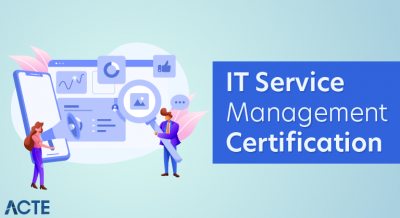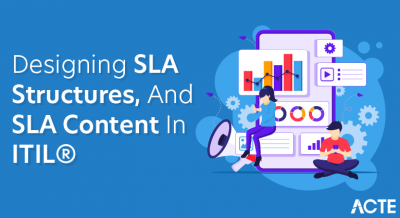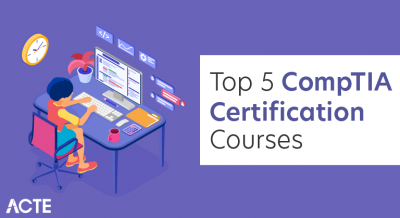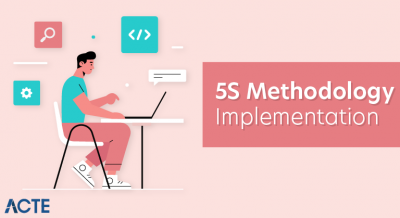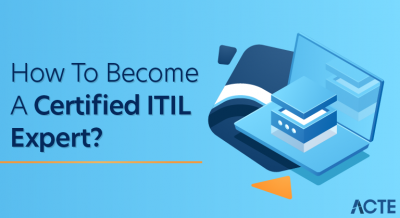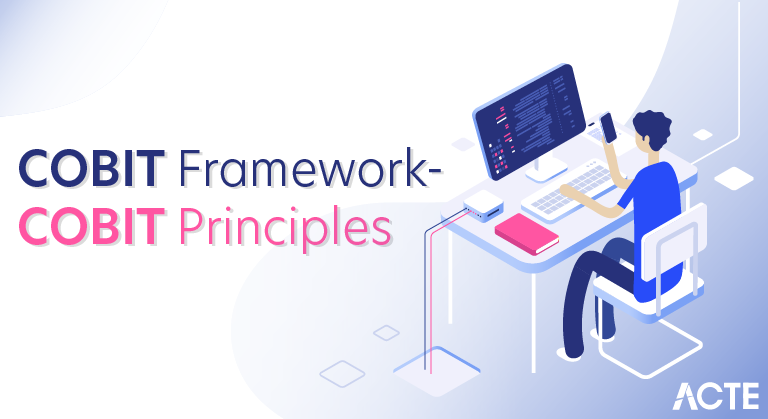
What is COBIT?
- COBIT stands for Control Objectives for Information and Related Technology. It is a framework created by the ISACA (Information Systems Audit and Control Association) for IT governance and management. It was designed to be a supportive tool for managers—and allows bridging the crucial gap between technical issues, business risks, and control requirements. COBIT is a thoroughly recognized guideline that can be applied to any organization in any industry. Overall, COBIT ensures quality, control, and reliability of information systems in an organization, which is also the most important aspect of every modern business.
- Today, COBIT is used globally by all IT business process managers to equip them with a model to deliver value to the organization, and practice better risk management practices associated with the IT processes. The COBIT control model guarantees the integrity of the information system.
What is COBIT Framework?
The COBIT business orientation includes linking business goals with its IT infrastructure by providing various maturity models and metrics that measure the achievement while identifying associated business responsibilities of IT processes. The main focus of COBIT 4.1 was illustrated with a process-based model subdivided into four specific domains, including:
- Planning & Organization
- Delivering and Support
- Acquiring & Implementation
- Monitoring & Evaluating
- All of this is further understood under 34 processes as per the specific line of responsibilities. COBIT has a high position in business frameworks and has been recognized under various international standards, including ITIL, CMMI, COSO, PRINCE2, TOGAF, PMBOK, TOGAF, and ISO 27000. COBIT acts as a guideline integrator—merging all solutions under one umbrella.
- The latest COBIT version 5 came out in April 2012 and consolidated the principles of COBIT 4.1, Risk IT Frameworks, and Val IT 2.0. This version draws reference from IT Assurance Framework (ITAF) from ISACA and the revered BMIS (Business Model for Information Security).
The Various Cobit Components:
- FrameworkIT helps in organizing the objectives of IT governance and bringing in the best practices in IT processes and domains while linking business requirements.
- Process DescriptionsIt is a reference model and also acts as a common language for every individual in the organization. The process descriptions include planning, building, running, and monitoring of all IT processes.
- Control ObjectivesThis provides a complete list of requirements that have been considered by the management for effective IT business control.
- Maturity ModelsAccesses the maturity and the capability of every process while addressing the gaps.
- Management GuidelinesHelps in better-assigning responsibilities, measuring performances, agreeing on common objectives, and illustrating better interrelationships with every other process.
COBIT is being used by all organizations whose primary responsibilities happen to be business processes and related technologies—all organizations and businesses that depend on technology for reliable and relevant information. COBIT is used by both government and private sector organizations because it helps in increasing the sensibility of IT processes.
Why is COBIT 5.0 the Most Celebrated Version?
- All previous versions of COBIT faced a variety of criticism; they were thought to facilitate limited opportunities—and sometimes even adverse results. A major IT firm found that COBIT practices can actually lead to a “Hot Potato” situation wherein all stakeholders had passed on the tasks down the line. Critics maintained that COBIT 5.0 encouraged paperwork and rote rules rather than merely promoting IT governance engagements and improving accountability.
- COBIT 5.0 addressed all the criticisms in a sustainable manner. It now encourages all organizations to govern and manage information in the most holistic and integrated manner. The guiding principles of COBIT 5.0 are:
- Meeting the needs of stakeholders
- Covering the whole enterprise from end to end
- Application of a single integrated framework
- Ensuring a holistic approach to business decision making
- Separating the governance from the management
- In several cases, COBIT 5.0 has been appreciated for its ability to reduce the risk of IT implementations. IT initiatives typically require quick, agile adaptations that simultaneously need regular buy-ins from stakeholders and other users. The COBIT 5.0 framework has been able to bring about a collaborative culture within the organization and this better met the needs, risks, and benefits of all IT initiatives.
The Advantages of COBIT 5.0 Certification
A COBIT 5.0 Certification not only prepares professionals for the global challenges to the business IT process but also delivers a substantial amount of expertise information on:
- IT management issues and how they can affect organizations
- Principles of IT governance and enterprise IT while establishing the differences between management and governance
- Accessing the ways in which COBIT 5.0 processes can help the establishment of the five basic principles along with other enablers
- Discussing COBIT 5.0 with respect to its process reference model and goal cascade
Benefits of COBIT
The professionals best suited for COBIT methodologies are those who are already in a position to understand the nuances of IT governance in business management practices. The course will be especially beneficial for:
- CIOs / IT Managers / IT Directors
- Risk Committee
- Process Owners
- Audit Committee Members
- COBIT 4.1 and earlier users
- IT Professionals in audit, risk, security, governance and assurance sectors
While the modern world is gearing towards an environment of several emerging technologies, including Consumerization, Cloud Computing, Social Media, Big Data and Mobility, information and IT is easily the new currency. Technology ensues massive volumes of information chunks to be easily supported and managed. This raises the success rate of businesses, but at the same time raises other challenging and complex management and governance concerns for the security professionals, enterprise leaders, and governance specialists. New businesses demand that risk scenarios are better met with the power of information. COBIT 5.0 is the exact solution the modern businesses are asking for.
Conclusion
While the modern world is gearing towards an environment of several emerging technologies, including consumerization, cloud computing, social media, big data, and mobility, information and IT is easily the new currency. This raises the success rate of many organizations, but at the same time raises other challenging and complex management and governance concerns for security professionals, enterprise leaders, and governance specialists. New businesses demand that risk scenarios are better met with the power of information. COBIT 5.0 is the exact solution the modern businesses are asking for.

